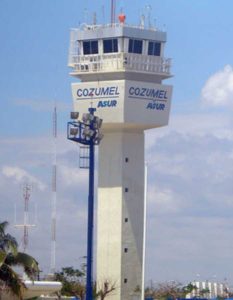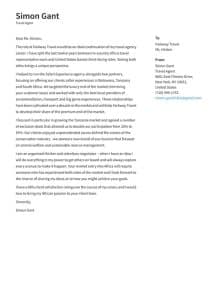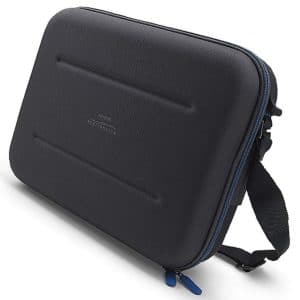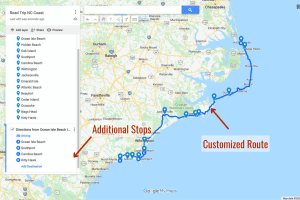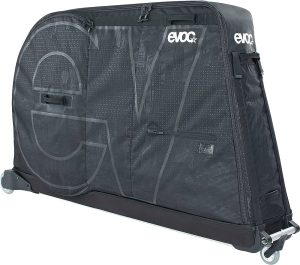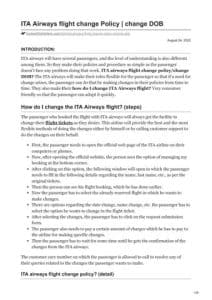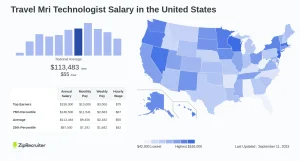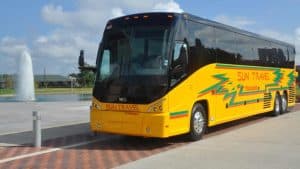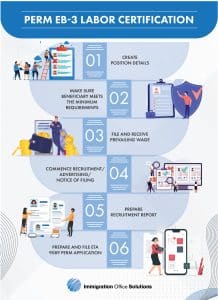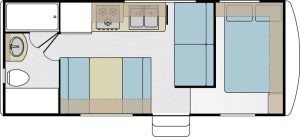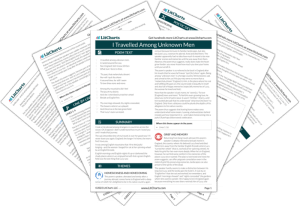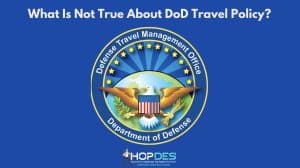Welcome to Hosteliest, your trusted source for all things travel-related. In this post, we will debunk some common misconceptions about the Department of Defense’s (DoD) travel policy. Join us as we explore what is and what isn’t true about DoD travel policy. Strap in for an informative ride!
Table of Contents
ToggleDemystifying the Misconceptions Surrounding the DoD Travel Policy
Travel policies can be tricky to decipher, more so when we’re talking about the Department of Defense (DoD) travel policy. If you landed on this page, it’s pretty clear you’re wondering “which is not true about DoD travel policy?” Well, you’re in luck! We’re here to debunk the most common misconceptions, so read on and let’s get those confusion clouds to clear.
Myth 1: The DoD Travel Policy is Strictly For Military Personnel
This is not true. The DoD travel policy covers not only military personnel but also civilian employees, contractors, and others performing official duties for the DoD. It ensures everyone involved in DoD activities adheres to particular procedures and manages resources efficiently while traveling.
Myth 2: The DoD Travel Policy is Irrelevant to Personal Leaves
Contrary to popular belief, this is another misconception. The truth is, the policy extends to personal leaves as well. When a DoD member takes personal leave during an authorized TDY (Temporary Duty), the DoD travel policy applies to regulate allowances and expenses during the break.
Myth 3: Any Expense Incurred During Travel is Reimbursable
No, this is not always the case. While the DoD travel policy covers many costs like transportation, accommodation, and meals, it doesn’t mean all expenses are reimbursable. For instance, personal expenses like haircuts, movie tickets, or extravagant meals are not covered unless they are a necessary part of the official duty.
Myth 4: The DoD Travel Policy Does Not Support Environmentally Friendly Practices
Believe it or not, this is another fallacy. The “Greening the Government” initiative was launched to promote sustainable environmental practices in federal agencies. The DoD travel policy supports this initiative and encourages members to use public transportation, carpooling, and other eco-friendly travel options whenever possible.
Finding the Right Information
In the world wide web era, you’ll find numerous sources claiming to be factual. However, it’s crucial to rely only on trusted and official sources to gather information about matters as significant as the DoD travel policy. The Defense Travel Management Office (DTMO) website is an excellent place to start. They provide comprehensive and up-to-date information about the policy and related travel guidelines.
To Wrap Up
While there might be more myths circulating around the DoD travel policy, these were the most common ones we thought you must know about. Remember, understanding the policy goes a long way in ensuring smooth travels while also carrying out DoD duties effectively. So, the next time you hear something about the DoD travel policy, ask yourself again, “which is not true about DoD travel policy?
Debunking Myths: Untruths About the Department of Defense (DoD) Travel Policy
Within the world of travel, particularly in relation to Hotels and Travel, there are a variety of misconceptions about the Department of Defense’s (DoD) Travel Policy. Let’s debunk some of these myths.
Firstly, it’s often believed that the DoD Travel Policy only applies to military personnel. This is not true. It covers all DoD employees, which includes both military and civilian personnel.
Next, the idea that all travel must be booked through the Defense Travel System (DTS). In reality, while the DTS is generally used, there are circumstances where other accredited travel services may be authorized for use.
Another common untruth is that DoD travelers are restricted to staying only at certain hotels or hotel chains. According to the policy, DoD travelers are allowed to choose any lodging that meets acceptable standards of safety and cleanliness. However, they are strongly encouraged to stay at DoD-approved lodging facilities when available.
One widespread myth is that travelers are expected to utilize the most economic means of transportation. Although cost is a factor taken into consideration, the policy also takes into account factors such as mission requirements, time, and traveler safety when approving modes of transport.
Lastly, it’s often thought that the DoD does not provide any travel perks or benefits. In fact, DoD travel credit cards offer several benefits like insurance coverage, frequent flyer miles, and certain duty-free privileges.
In conclusion, many assumptions about the Department of Defense’s Travel Policy are not entirely accurate. It’s always best to refer directly to the official policy document or consult with a DoD travel advisor for the most accurate and current information.
Understanding the Basics of DOD Travel Policy
The Department of Defense (DOD) has set forth distinct travel guidelines for its employees. These are implemented to ensure the safety, comfort, and efficient journey of personnel when they are on official duty. Contrary to common beliefs, DOD travel policy is not a rigid set of rules that leaves no room for flexibility. Instead, it takes into account various factors like the nature of duty, destination, duration and even personal preferences in some cases.
Common Misconceptions about DOD Travel Policy
One of the major misconceptions about DOD travel policy is that it strictly restricts accommodation choices of traveling personnel to government or military facilities only. This is not entirely accurate. While preference is given to government quarters, DOD employees are allowed to stay at commercial hotels if government quarters are unavailable or unsuitable. Another misconception is that DOD policy covers all the expenses associated with personal travel, which is not true. The DOD only provides coverage for authorized expenses related to official business travel.
Compliance and Exceptions in DOD Travel Policy
Compliance with the DOD travel policy is mandatory. However, there are circumstances where exceptions can be made, which further disproves the notion that the policy is unyielding. Certain emergencies, special assignments or a mission’s specific requirements may lead to deviation from standard policy. These exceptions, however, must be justified and documentation of such justifications is necessary. It’s essential to remember that while the DOD travel policy serves as a guiding framework, it also accommodates the dynamic and unpredictable nature of military operations and defense activities.
Frequently Asked Questions (FAQ)
What are some common misconceptions about the DoD travel policy that people often believe are true when planning their hotel and travel arrangements?
1. All Hotels are Approved for DoD Travel: A common misconception is that all hotels are considered suitable for DoD travel. However, this is not the case. Certain hotels are not compliant with the Defense Travel System (DTS) standards or cannot meet the specific lodging needs of the DoD.
2. Travel Policies are the Same for All DoD Employees: People often believe these policies apply uniformly to all DoD employees. In reality, different regulations might apply depending on the employee’s role, rank, and the nature and purpose of their travel.
3. Personal Travel can be Mixed with DoD Business Travel: Some may believe they can combine personal trips with DoD business travel, yet this can be a policy violation. While in some situations it may be allowed, it generally requires explicit pre-approval.
4. All Travel Expenses are Covered: The assumption that all expenses incurred during the trip are covered by the DoD is another misconception. The DoD typically only reimburses for ‘reasonable and allowable’ expenses related to official business.
5. You can Choose any Flight or Route: Many believe they have complete freedom in choosing their flight or route. However, the Joint Travel Regulations (JTR) require travelers to select the most direct, cost-effective flights available, unless justified otherwise.
Understanding the DoD travel policy properly can help in efficient planning and also ensure compliance with the rules, ensuring smooth and hassle-free travel. It’s always recommended to refer to the actual policy document or contact the relevant travel management office for accurate information.
Can you identify any misinformation about the DoD travel policy that frequently circulates within the hotels and travel industry?
Sure, there are a few misconceptions about the DoD travel policy that often circulate in the hotels and travel industry.
1. DoD personnel can stay at any hotel: Many people think that DoD personnel can stay at any hotel they wish during travel. However, under the Joint Travel Regulations, DoD members are required to stay in approved accommodations for safety and security.
2. DoD personnel are not eligible for government rates: Another common misconception is that DoD travelers are not eligible for government rates at hotels. In fact, they are entitled to receive government per diem rates, which can be significantly lower than standard rates.
3. All travel must be booked through the Defense Travel System (DTS): While the DTS is commonly used for booking travel, it’s not the only method authorized for reservations. Travelers may book through an approved Travel Management Company if needed.
4. DoD travelers cannot earn reward points: Some believe that DoD personnel are not allowed to earn reward points from hotel stays or airline flights. This is untrue. They can participate in loyalty programs and accumulate points for personal use.
5. All expenses are covered by the department: This is partly true. While the department does cover necessary expenses, not all expenses qualify. Personal or leisure activities are generally not reimbursed.
Please note that these are just some general misconceptions, and the specific travel policies can vary depending on the mission, agency, and other factors. It’s always a good idea for DoD travelers to consult their specific regulations and guidelines before planning travel.
What are three common misunderstandings about DoD’s travel policy that can impact one’s hotel and travel plans?
1. Per Diem Rates: The first common misunderstanding about the DoD’s travel policy is related to per diem rates. Many travelers often believe these rates – which cover lodging, meals and incidental expenses – are the same for all locations. However, they vary based on the destination and time of year. Not understanding this can lead to travelers overspending on hotels and meals, thinking they will be fully reimbursed when in reality, they may only receive a portion back.
2. Approval Process: Another common misunderstanding is about the travel approval process. Not all trips are automatically approved. In fact, each trip has to be approved or authorized by the appropriate authority before any costs are incurred. Travelers who don’t get pre-approval risk not getting reimbursed for hotel and travel expenses.
3. Travel Restrictions: The third common misunderstanding regards travel restrictions. There are often many restrictions in place that can impact one’s choice of hotels and means of travel. For instance, the DoD might require you to use government quarters or contract hotels over commercial accommodations at certain times. Travelers who do not adhere to these rules could face penalties or non-reimbursable expenses.
Not fully understanding or complying with DoD’s travel policies can greatly impact one’s hotel and travel plans as well as their financial situation.
In conclusion, understanding the nuances of the DoD travel policy is critical for any government personnel or contractor planning to travel on official business. It is significant to discern what is accurate versus what is a myth when it comes to these travel policies. As previously debunked, the concept that the government won’t cover expenses if the hotel isn’t the cheapest available is indeed not true. Likewise, the idea that you are only permitted to have meals at your lodging location is also a falsehood. Fundamentally, whether booking airfare, lodging, or meals, the key is to make cost-effective decisions that serve the best interest of the government. With this knowledge in hand, travelers can plan a smooth and compliant journey aligned with the DoD travel policy.



